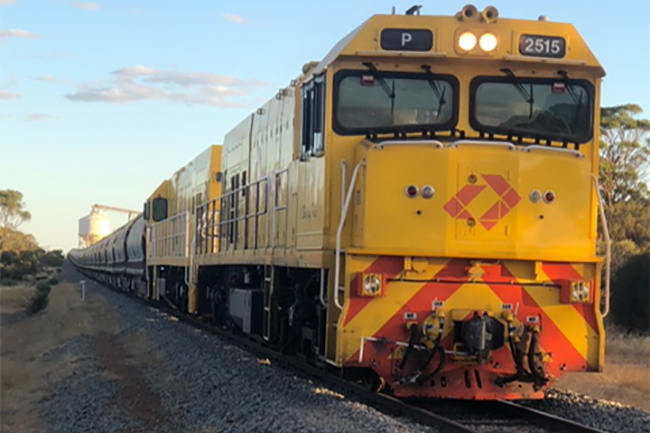Source : BUSINESS NEWS
Aurizon Holdings is planning 200 job cuts across its rail business after taking several hits over the past year, including a big fall in bulk haulage volumes in WA.
The ASX company said bulk haulage volumes in the ten months to April 2025 were 45.3 million tonnes, a drop of 11mt from the previous correspond period.
The decrease was mainly in its Buk West division, where volumes fell by 8mt.
That was driven by a 5.6mt drop in bauxite and alumina tonnage as a result of Alcoa closing its Kwinana refinery.
The Buk West business was also affected by changing grain volumes in WA.
A soft 2023 harvest meant grain haulage volumes fell by 1.5mt in the half-year to December 2024 but a stronger 2024 harvest meant volumes were up 550,000 tonnes in the four months to April.
Led by former Rio Tinto iron ore boss Andrew Harding, Aurizon has responded to the tougher market conditions by conducting a review of what it called non-operational costs, including labour and “external spend”.
Phase one of the revie had identified $50 million of projected savings, including a reduction of about 200 full-time equivalent roles.
It has not provided a geographic breakdown of the job cuts.
The next phase of the cost review is underway with decisions expected by 30 June.
Aurizon noted today that its profit outlook remained subject to provisions that may be needed in regard to three bulk haulage customers that have gone into external administration.
Aurizon is owed about $50 million by Centrex and OneSteel Manufacturing (part of the GFG Group) and $15 million by Northern Iron, which operates the Warrego magnetite mine.
The setbacks this year come after Aurizon put its Yilgarn hub (which serviced Mineral Resources’ iron ore mines) onto care and maintenance.
Other WA customers in the bulk business include nickel miner Minara Resources (part of Glencore), Worsley Alumina (part of South32) and iron ore miner Gold Valley.
While the bulk business has faced several setbacks, Aurizon’s other business units have fared better.
Its network business (tied to central Queensland coal mines) has seen a small drop in volumes while its coal business (tied to NSW and south Queensland mines) has seen a small increase.


